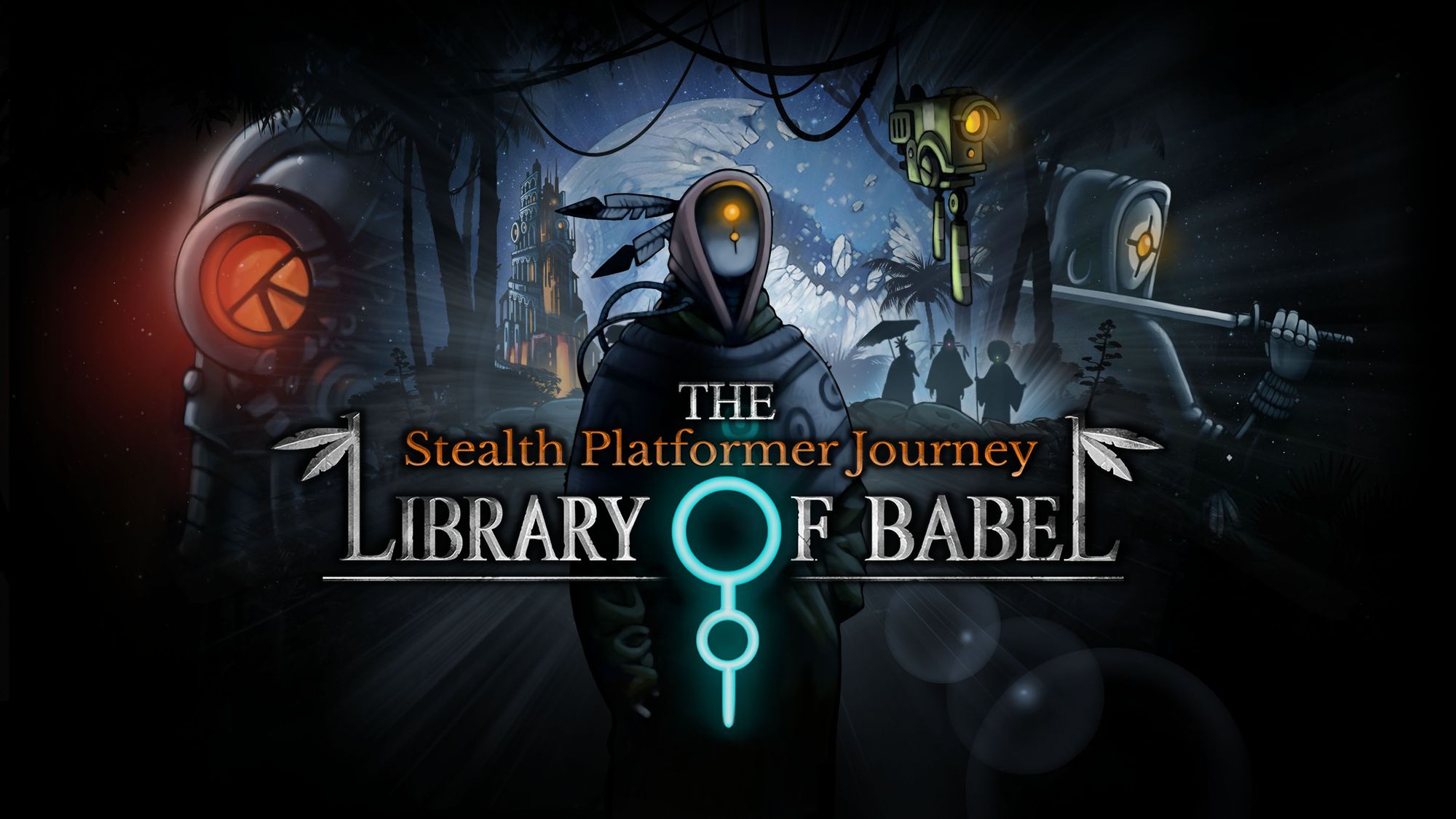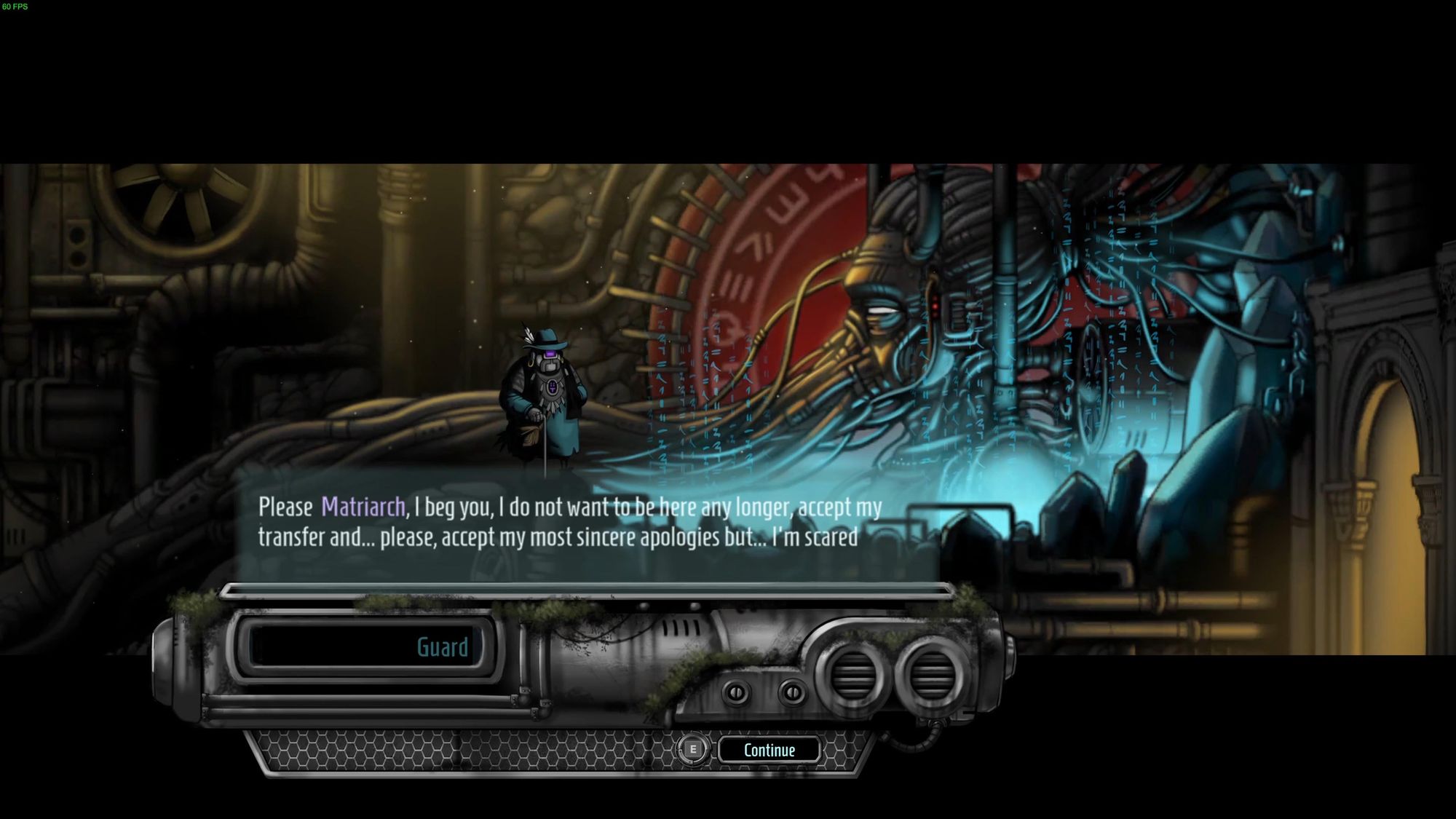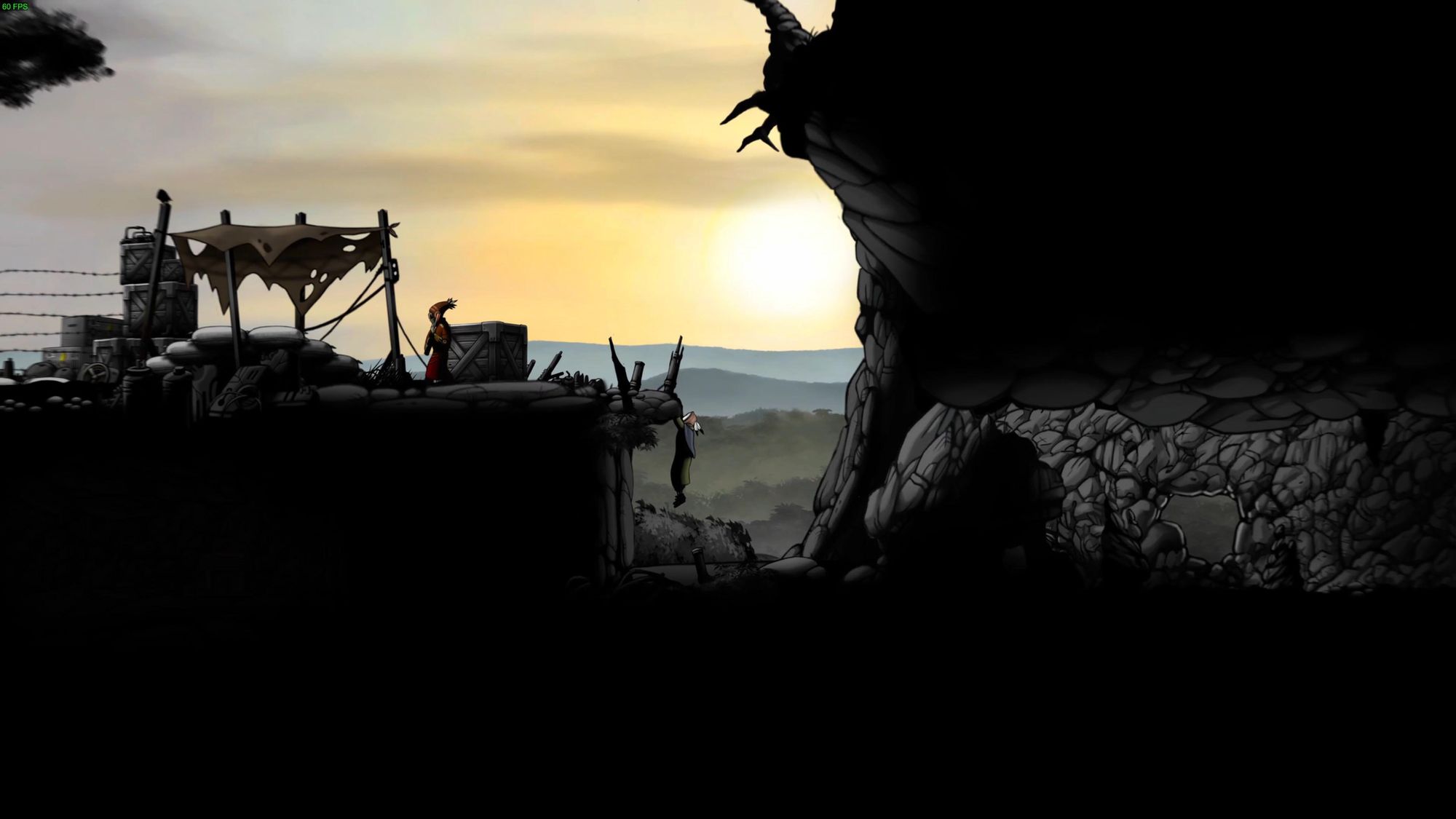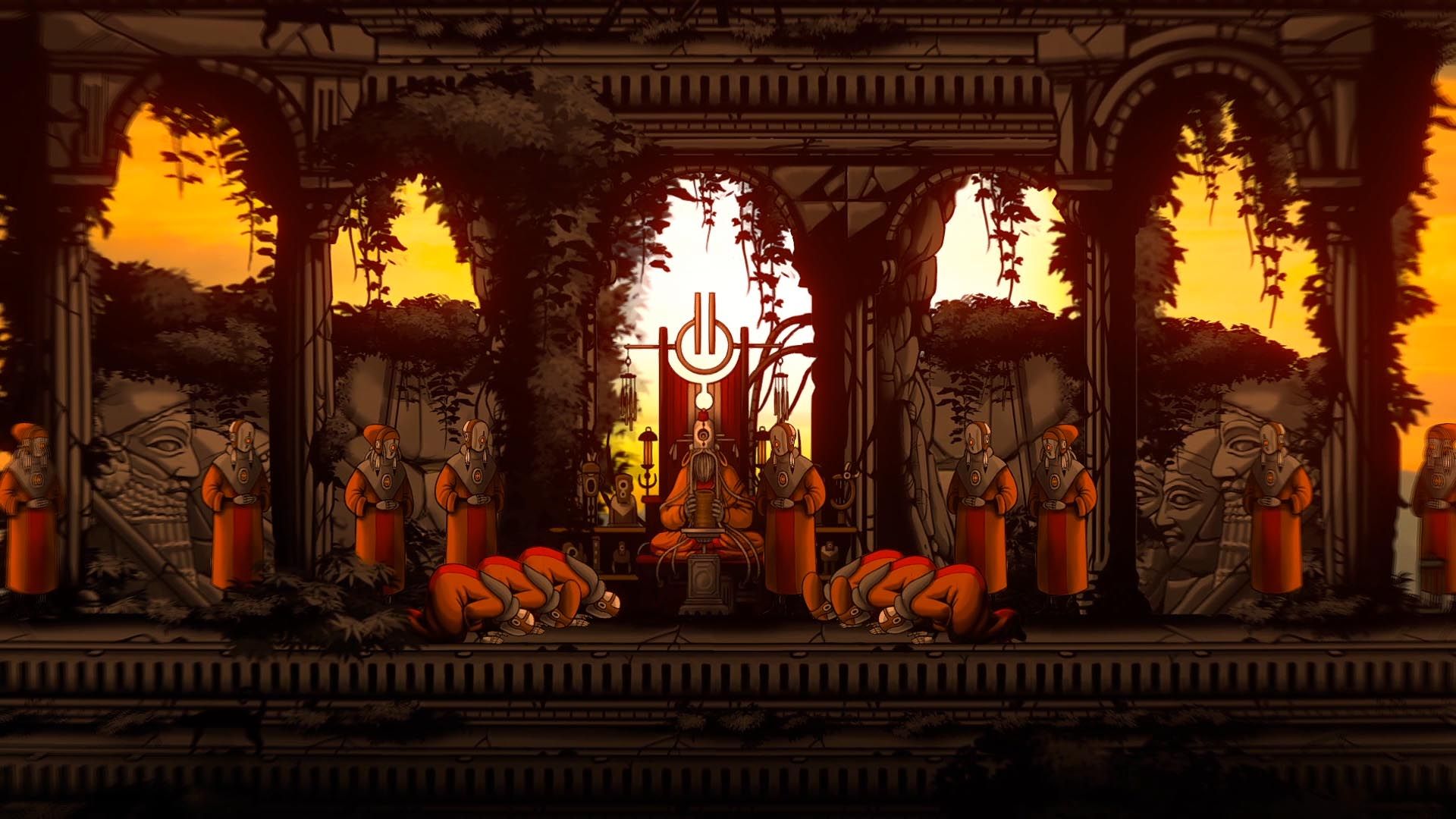The Library of Babel Review
Robotic existentialism and seeking the truth at the end of time

"This truth, whose immediate corollary is the future eternity of the world, cannot be placed in doubt by any reasonable mind. Man, the imperfect librarian, may be the product of chance or of malevolent demiurgi; the universe, with its elegant endowment of shelves, of enigmatical volumes, of inexhaustible stairways for the traveler and latrines for the seated librarian, can only be the work of a god." —Jorge Luis Borges
Inspired by the 1941 short story bearing the same title by Jorge Luis Borges, The Library of Babel is an exploration platformer that combines the inquisitive puzzles of a point-and-click with the narrative of classic post-post-humanist sci-fi literature. This title, published by Neon Doctrine, is a textured dive into far-future cults, eldritch monsters, and philosophical quandaries.
We play as Ludovik, a "Seeker," one robot of many in this lush Mesopotamian future that is 20,000 years removed from the last human. All the world is run by robots, a feat immediately recognizable to anyone that has enjoyed the surge in post-humanist science fiction of the last few years, namely NieR: Automata.

Ludovik is part of a small tribe tasked with an unusual goal: they must protect an ancient library that contains everything that is, was, and will ever be written. Ignorant to the mythology of their divine creators, Ludovik and the other robots are governed by the Matriarch, an intelligent system that sees to their day-to-day tasks and meaning.
When it was proclaimed that the Library contained all books, the first impression was one of extravagant happiness. All men felt themselves to be the masters of an intact and secret treasure...The universe was justified, the universe suddenly usurped the unlimited dimensions of hope. —Jorge Luis Borges
As a Seeker, Ludovik must investigate Babylon and its environs after a state of emergency caused by the local military cult and its fanatical leader. Spurned by murder and mystery, Ludovik must push through dangers unarmed and see to the truth behind what is going on at the Library's doorstep. Atmospheric, gorgeously animated, and existential, The Library of Babel crosses genres to drag the player down into the mire of its intrigue.

The ameplay is fairly straightforward, split between searching for clues/items in the world and engaging in stealth and platforming segments where you must keep away from patrolling soldiers and eldritch beasts. Ludovik parades through a gorgeous hand-drawn environment that's lush with overgrown foliage and dilapidated ruins. The world itself adds to the mystery, enfolding the player in a fully-realized biome whose terroir is as familiar as it is fantastical. Between deadly obstacles and deadlier enemies, Ludovik must sneak his way through camps and past beasties in a game that's entirely without player-initiated violence.
Replete with references, The Library of Babel is supposed to evoke the best point-and-click graphic adventure games of the 1990s, with dialogue and inventory management that doesn't hold the player's hand. Investigation is paramount to the gameplay experience, and the story unfolds across reams of dialogue that avoid common expositional pitfalls. It's moody and philosophical, existing somewhere between Blade Runner and Apocalypse Now. In a landscape totally without the human element, the game still engages common existential ideas across its short runtime, expertly threading its mysteries with thoughtful diatribes on religion, warfare, and the self.
When not engaging in the stealth or platforming elements, The Library of Babel has plenty of mini-games that shake up the formula. The game will only take five or six hours to beat, but like many of the best atmospheric indie experiences, it plays more like an interactive film or novel. While its inspirations might not be obvious to everyone that plays it, it's clear that Babel's creators wanted to engage players from a point of philosophical education, backed by the game's endless discovery and sense of mystery. Many of the game's most puzzling aspects will remain even after the credits roll, inviting the player to truly think about Ludovik, Lei, and the others for days after.

Perhaps my old age and fearfulness deceive me, but I suspect that the human species -- the unique species -- is about to be extinguished, but the Library will endure: illuminated, solitary, infinite, perfectly motionless, equipped with precious volumes, useless, incorruptible, secret. —Jorge Luis Borges
